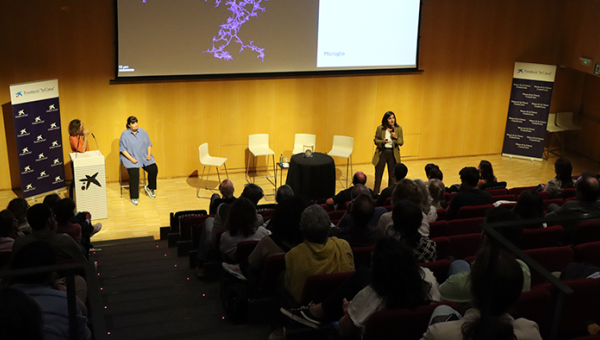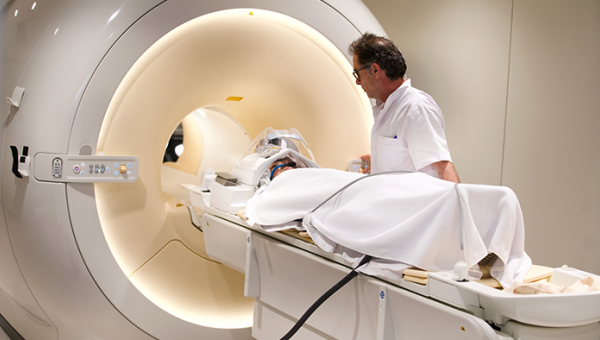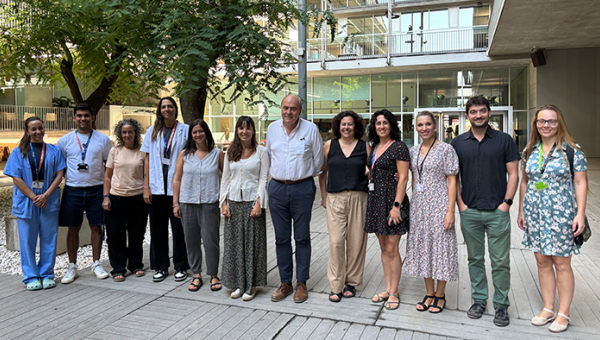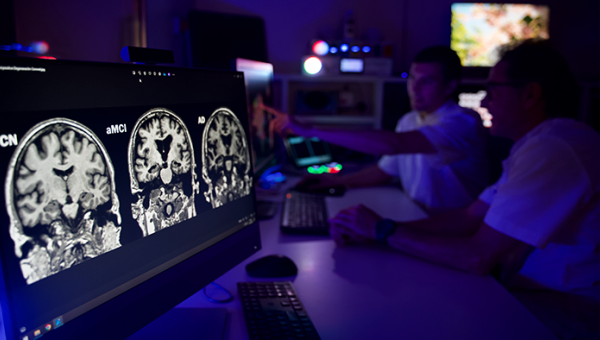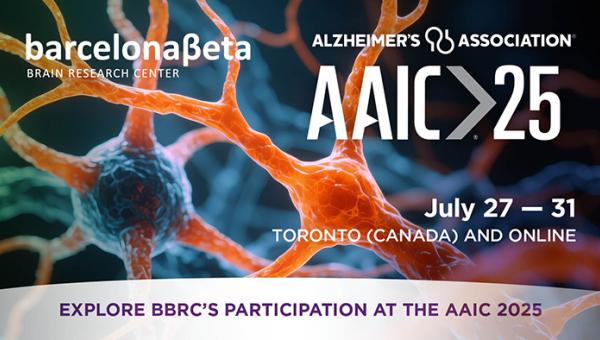Latest news on Alzheimer's
Check out the latest news about Alzheimer's disease research that we carry out at the Barcelonaβeta Brain Research Center (BBRC). Discover the advances in Alzheimer's prevention in which our scientists participate, as well as the news of the Alfa Study, dedicated to the early detection and prevention of the disease.
We take part in the outreach initiative “European Researchers’ Night”
The European Researchers’ Night is held every year on the last Friday of September in more than 300 cities across 30 European countries
The European Commission authorizes the marketing of donanemab for the treatment of early-stage Alzheimer’s
Following the positive opinion from the EMA in July, the European Commission has now authorized the marketing of the drug.
We confirm the use of the p-tau217 blood biomarker to detect Alzheimer's disease in its early stages
The international study shows that this biomarker allows detection of the presence of amyloid beta deposits, a key pathology in the development of the disease, in individuals without cognitive impairment
The Pasqual Maragall foundation claims the role of caregivers and the importance of research on World Alzheimer's Day
This year the Foundation highlights the role of the caregiver, warn about the lack of institutional support and emphasise research as the only way to find a solution to the disease
Combining diet, physical exercise, cognitive training, and a green tea compound reduces the risk of dementia
A clinical trial conducted jointly by the Research Institute of Hospital del Mar and the Barcelonaβeta Brain Research Center, concludes that combining a healthy lifestyle program with epigallocatechin gallate (EGCG), a natural compound found in green tea, could offer sustained cognitive benefits in people at high risk of developing Alzheimer’s dise
EMA approves marketing authorization for donanemab for early-stage alzheimer’s treatment
The drug was approved following a review of new data submitted by the pharmaceutical company after an initial negative opinion in March of this year.
Sleep fragmentation alters brain structure, especially in women
This research achieved a more precise measurement of sleep quality thanks to the combined use of actigraphy, brain MRI scans, and biomarker analysis.
Blanca Rodríguez defends her PhD thesis on biological aging and its role in Alzheimer’s disease
Her work focused on understanding how telomere length—a key marker of biological aging—influences brain vulnerability and the development of Alzheimer’s disease.
Once again the BBRC brings its science to the international Alzheimer's conference AAIC 2025
Our researchers will present 7 talks and 22 scientific posters during the 5 days of the congress

